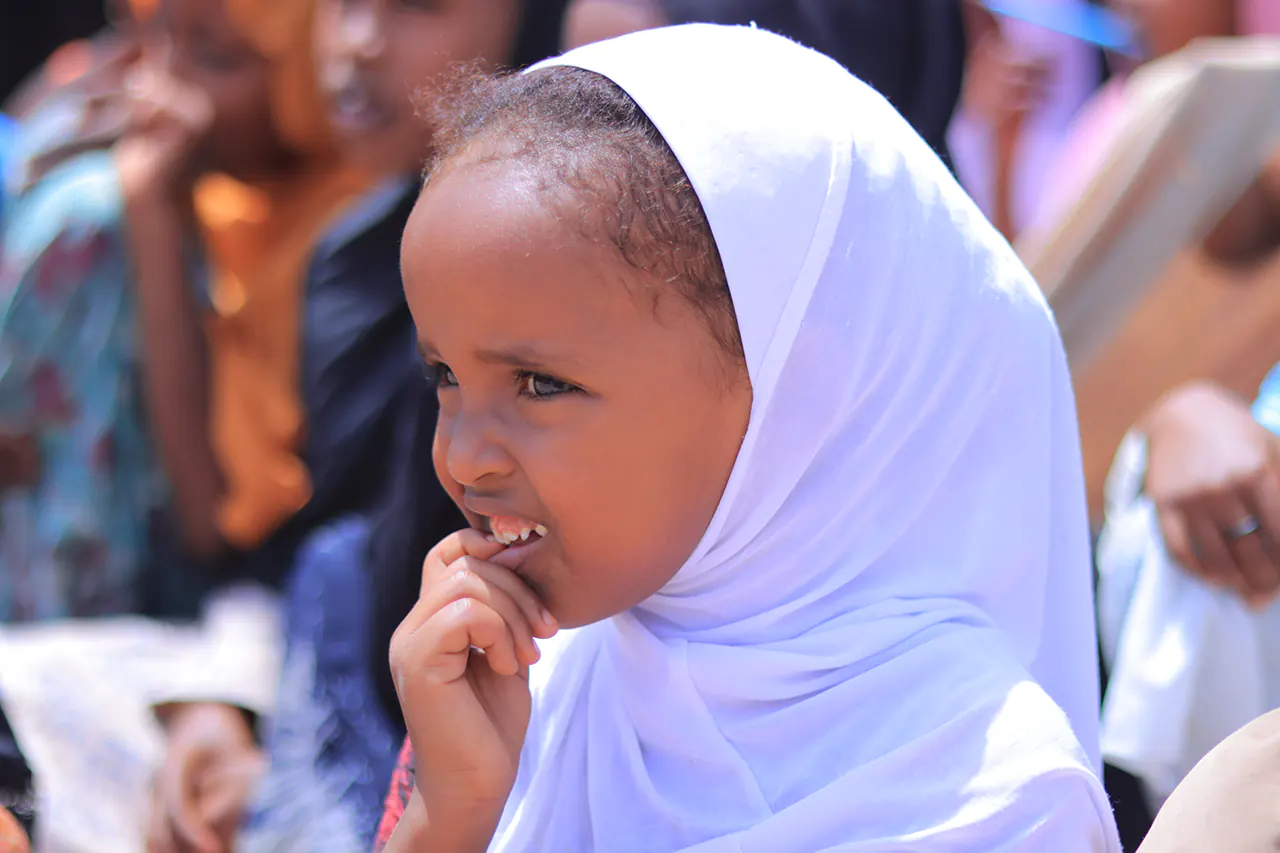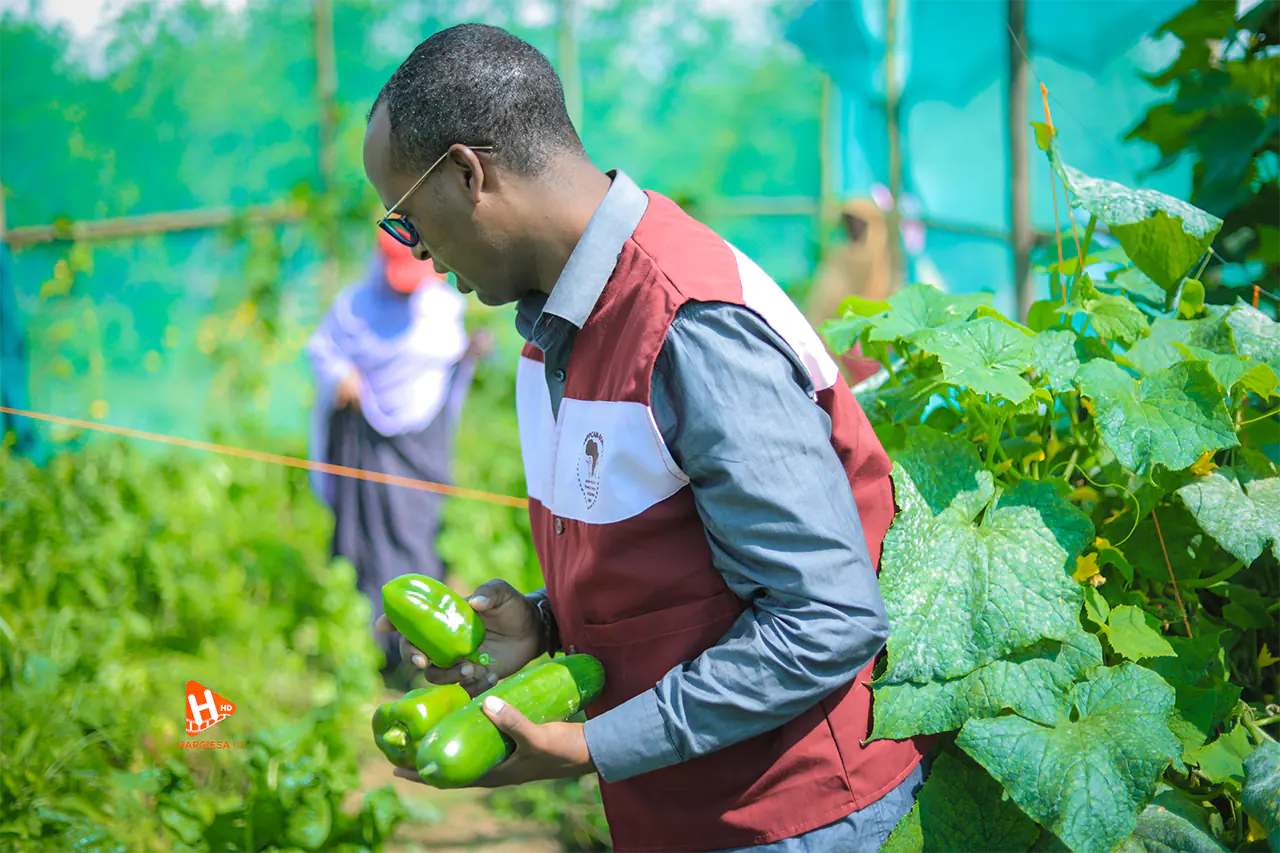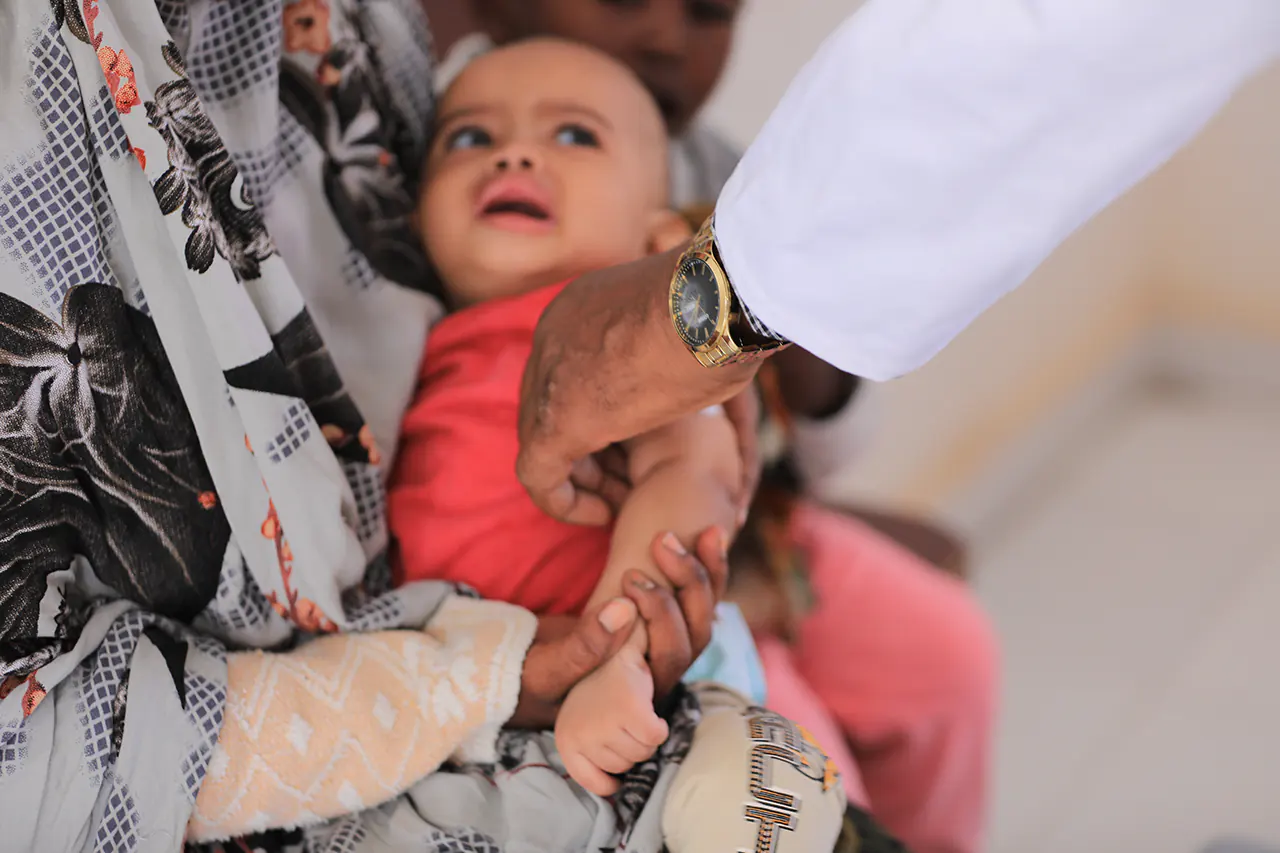Africa’s children are at the heart of the continent’s demographic transition, playing a crucial role in shaping its future. Nowhere else in the world are children as central to a region’s long-term development as they are in Africa, where nearly half of the population consists of children. As Africa’s child population continues to grow, it is poised to surpass all other continents in size by the latter part of the 21st century.
Almost half of Africa’s total population consists of children, making them a key demographic for the continent’s future growth and development.
Africa is home to an estimated 580 million children, a number that is four times larger than the child population of Europe.
One in four children worldwide lives in Africa, highlighting the continent’s significant role in global child welfare and development.
One in four children worldwide lives in Africa, highlighting the continent’s significant role in global child welfare and development.

Every child has the fundamental right to grow up in a safe and nurturing environment, free from harm, abuse, and exploitation. Protection from violence, neglect, and harmful practices is essential for a child’s physical, emotional, and psychological development. ACRIF is committed to ensuring that children are safeguarded from all forms of abuse, including domestic violence, sexual exploitation, child labor, trafficking, and psychological intimidation.
Gender-based violence (GBV) and female genital mutilation (FGM) are pervasive issues that violate the rights and dignity of girls and women. ACRIF is committed to ending GBV and FGM through comprehensive programs that include education, legal advocacy, and community engagement and awareness. We also work with survivors to provide medical, psychological, and social support, and empower girls and women to stand up against these harmful practices.
Child labor remains a critical issue in many parts of Africa, where children are often forced into hazardous work due to economic pressures. ACRIF is dedicated to eradicating child labor by working with governments, communities, and both International and National Non-Government Organizations to enforce laws that protect children from exploitation.
Child trafficking is a severe violation of children’s rights, involving the recruitment, transportation, and exploitation of minors. ACRIF collaborates with law enforcement, government agencies, and NGOs to prevent child trafficking and provide rehabilitation services for victims. Our initiatives include community education campaigns, strengthening legal frameworks, and offering support services such as counseling, Healthcare, education, and vocational training for rescued children.
ACRIF works to end child marriage by raising awareness of its detrimental effects on girls’ health, education, and future prospects. Child marriage is a widespread practice in many African countries, often driven by poverty, cultural traditions, and lack of education. We support communities through our programs that promote the rights of girls, provide education and vocational training, and engage local leaders and families in the fight against child marriage.
Every child has the right to participate in decisions that affect their lives and to have their voice heard and taken seriously. This fundamental right ensures that children are not just passive recipients of decisions but active agents in shaping their own futures and the societies they live in. ACRIF recognizes that children possess unique perspectives and insights that can contribute to more effective and just governance at all levels – from their families and communities to local and national structures.
ACRIF strives to reform juvenile justice systems to ensure that children are treated fairly and humanely. We advocate for the use of restorative justice practices, alternatives to detention, and the provision of legal aid and support services. Our goal is to help children reintegrate into society and reduce recidivism through education, vocational training, and community support.
Orphans and vulnerable children often face significant challenges, including poverty, lack of education, and limited access to healthcare. ACRIF supports Orphans and vulnerable children by providing full care that addresses their physical, emotional, and educational needs.
Every child has the right to a safe and nutritious diet. ACRIF supports maternal and child nutrition through Infant and Young Child Feeding (IYCF) practices, micronutrient fortification, and specialized food for children and pregnant women. We also build staff capacity and advocate for better policies under the Scaling Up Nutrition (SUN) movement. To enhance food security, ACRIF empowers agro-pastoral communities with improved seeds, sustainable farming practices, market access, and resource management. Additionally, we promote economic growth by providing fertilizers, training farmers, and supporting watershed management for long-term sustainability.

ACRIF engages in advocacy and policy support to promote nutritional well-being at the national and regional levels. We collaborate with governments, NGOs, and international organizations to develop and implement policies that address malnutrition and food insecurity. Our efforts include research, capacity building, and the promotion of evidence-based interventions that improve nutrition outcomes for children and their families.
ACRIF focuses on improving maternal and child nutrition through initiatives such as breastfeeding promotion, micronutrient supplementation, and education on healthy eating practices. Nutrition during pregnancy, infancy, childhood, and adolescence is vital for growth and development. We work with healthcare providers and communities to ensure that mothers and children receive the nutrition they need for a healthy start in life.
ACRIF provides therapeutic feeding programs, including ready-to-use therapeutic foods (RUTF) and medical care for severely malnourished children. We also offer support for moderate acute malnutrition through supplementary feeding programs, ensuring that children receive the necessary nutrients to recover and thrive.
ACRIF promotes sustainable agriculture through kitchen and school gardening initiatives to enhance food security, nutrition, and environmental stewardship. Kitchen gardens provide families with fresh, nutritious food while also generating income through surplus produce. School gardens serve as hands-on learning spaces, teaching children about agriculture, nutrition, and sustainability while contributing to school meal programs. Through training, resources, and advocacy.
Ensuring food safety is crucial for the health and well-being of children and the communities we work with. ACRIF implements programs that engage communities about safe food handling practices, proper storage, and preparation methods. We work with local governments, Local NGOs and International NGOs to establish and enforce food safety regulations, reducing the risk of foodborne illnesses and ensuring access to safe, nutritious food.
Ensuring children have access to nutritious food is fundamental to their healthy growth, development, and overall well-being. However, many children face micronutrient deficiencies that can hinder their physical and cognitive development, impacting their ability to learn, thrive, and reach their full potential. Food fortification – the process of adding essential vitamins and minerals to commonly consumed foods – offers a cost-effective and sustainable strategy to address these widespread nutritional gaps.

Every child is entitled to have access to quality preventive, promotive, curative, and rehabilitative services, and to enjoy the highest attainable standard of health. Our strategy focuses on improving the health of vulnerable children, adolescents, and women of reproductive age.
We address the leading causes of maternal, newborn, under-five child, and adolescent illness and mortality. Interventions focus on behavior change, community system strengthening, health system strengthening and advocacy at individual, family, community and service provider levels.
ACRIF focuses on comprehensive healthcare programs that address the unique needs of children. We provide immunizations, regular health check-ups, and treatment for common childhood illnesses throughout multiple health facilities at both national and regional level sites. Our programs also include health education for children and their caregivers, promoting healthy lifestyles and preventive care.
ACRIF provides prenatal and postnatal care, and education on reproductive health. Maternal and reproductive health is a critical component of our healthcare programs. We aim to reduce maternal and infant mortality by ensuring that women have access to skilled healthcare providers, safe delivery services, and the knowledge to make informed decisions about their reproductive health.
Health emergencies, such as disease outbreaks or natural disasters, children are particularly vulnerable. ACRIF Implements emergency response programs that providing immediate medical care, nutritional support, and psychosocial services. We also work on strengthening health systems to better prepare for and respond to future emergencies, ensuring that children’s health needs are met promptly and effectively.
ACRIF advocates for every child’s right to free education and play, ensuring inclusivity regardless of gender, background, or ability. Using a systems approach, ACRIF collaborates with key stakeholders to create a protective and supportive environment for all children, particularly the most vulnerable. Its strategy focuses on increasing access to quality education and equipping children with essential life skills. ACRIF prioritizes six key areas, including early childhood development, primary education, and inclusive sports and recreation. Additionally, it actively promotes and safeguards every child’s right to play, recognizing its crucial role in their overall well-being and development.

Early childhood is a critical period for cognitive, social, and emotional development. ACRIF implements early childhood care and development programs that provide young children with stimulating and nurturing environments. These programs include access to early learning, health services, and parental support, ensuring that children are well-prepared for the challenges of primary education and beyond.
ACRIF works to increase enrollment and retention rates in primary schools, especially for marginalized and vulnerable children. We support initiatives that improve the quality of education, including teacher training, provision of learning materials, and the creation of child-friendly learning environments.
ACRIF promotes school health and nutrition programs that provide regular health check-ups, immunizations, and nutritious meals for students. We also educate children on healthy lifestyles, hygiene, and nutrition, ensuring that they have the knowledge and resources to stay healthy and succeed academically.
ACRIF advocates for the inclusion of regular physical education classes in schools, providing training for teachers and resources for schools to implement effective programs. We emphasize the importance of physical activity for academic performance and long-term health.

ACRIF’s WASH (Water, Sanitation, and Hygiene) programs ensure that every child has access to safe water, sanitation, and a clean environment, which are vital for their health and well-being. The initiatives focus on supplying safe water, providing and maintaining inclusive sanitation facilities, emergency water trucking during crises, and promoting hygiene through community-led approaches. ACRIF also empowers children and vulnerable groups to participate in WASH decision-making, fostering sustainable and equitable access to essential services for all.
ACRIF ensures access to safe water, sanitation, and hygiene through sustainable WASH programs and emergency response efforts. By providing clean water, inclusive sanitation, and hygiene education, we promote health and prevent disease. In crises, we deliver rapid water trucking, sanitation solutions, and hygiene support to protect vulnerable communities.
ACRIF strengthens WASH services in health facilities and schools to ensure safe water, sanitation, and hygiene for students, patients, and staff. We provide clean water access, gender-inclusive sanitation, and hygiene education to create healthier learning and healthcare environments, reducing disease risks and promoting well-being.
ACRIF promotes sustainable waste management through recycling, safe disposal, and community cleanliness. Working with local governments, we reduce environmental pollution and protect public health. Special focus is given to managing medical waste in health facilities to prevent contamination and ensure safety.
ACRIF promotes safe hygiene practices and works to achieve Open Defecation Free (ODF) communities through education and community-led initiatives. By encouraging handwashing, proper waste disposal, and improved sanitation, we help prevent disease and create healthier living environments.
Their Voices Deserve to Be Heard. Sign up for our newsletter and get updates on critical issues facing African children, and how you can help make a difference.

ACRIF (former ANPPCAN Somaliland) is a development and humanitarian organization that advances children’s rights and equality for girls and boys